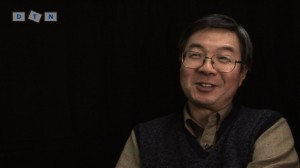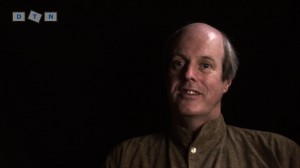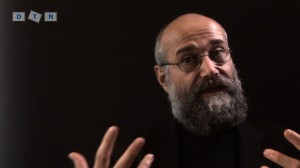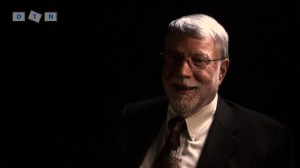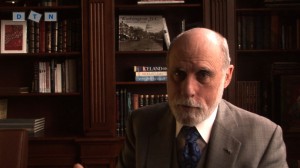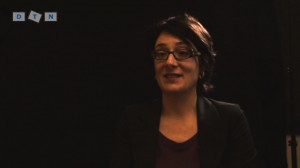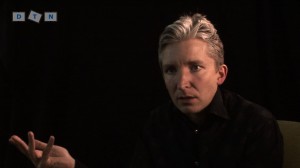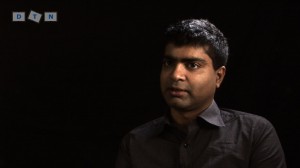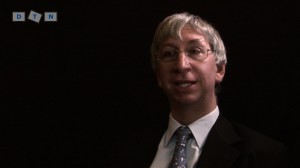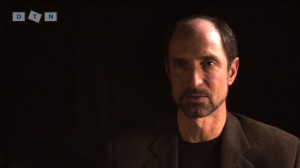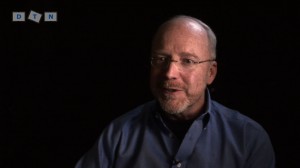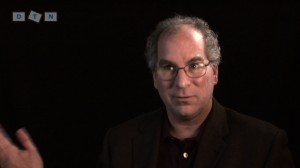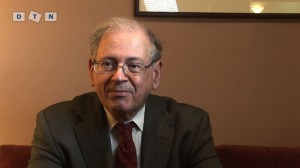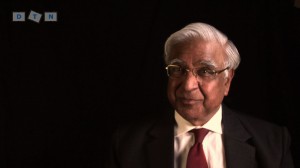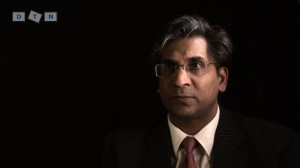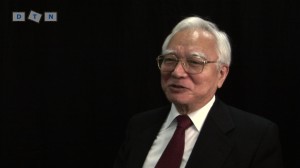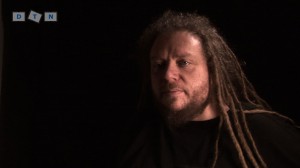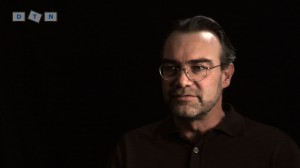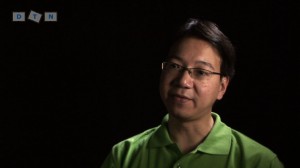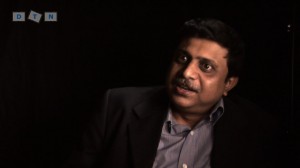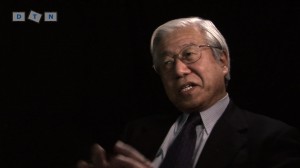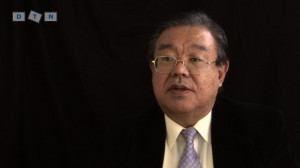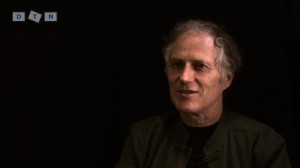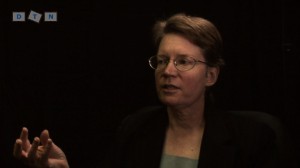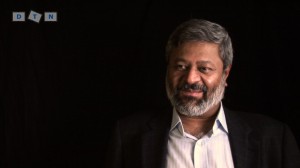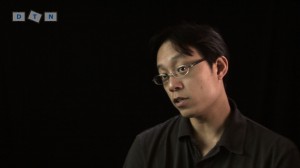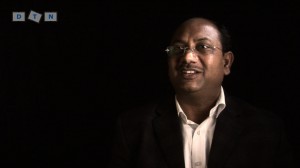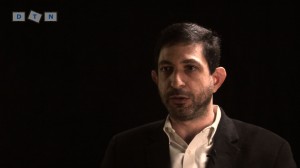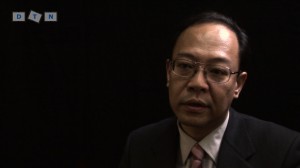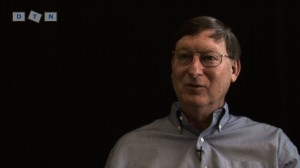Future of Internet/ ICT interview list of experts
______________________________________________________________________________________________________________________________________________________
Izumi Aizu, Associated with Asia Network Research, and The Asia & Pacific Internet Association (APIA).
“There is a good possibility to have some part of network fragmented. I don’t think the entire Internet will be fragmented, because it will not happen overnight, and if at least wise people see the danger of fragmentation happening in reality, there must be people collectively work together to fix the problem, to patch back or some sort of design change. So, I still am a little bit optimistic that people are not that foolish to let it fragment automatically.”
______________________________________________________________________________________________________________________________________________________
Mitra Ardron, Founder and Executive Director of Natural Innovation Foundation.
Focusing on open technology for sustainability.
“Different cultures will do this differently. The key thing is whichever cultures move fast and whichever businesses within a culture move fast are likely to have the advantage of creating the industries that in our globalised world will be selling.”
______________________________________________________________________________________________________________________________________________________
Yochai Benkler, Professor at Harvard Law School, and Co-Director at the Berkman Center for Internet and Society at Harvard.
“One potential [economic] model is one in which a large portion of what we care about in the information environment is produced by individuals and organizations functioning within social production systems. And by social production systems, I mean classes of behaviour that aren’t triggered or directed by market mechanisms, necessarily or by managerial commands, but are rather driven by social motivations.”
(.mov) click here.
iPhone (.m4v) click here.
For the transcript of the interview click here.
______________________________________________________________________________________________________________________________________________________
John Seely Brown, Independent co-chair of the Deloitte Center for Edge Innovation.
John is a researcher who specializes in organizational studies with a particular bent towards the organizational implications of computer-supported activities.
“Instead of large organizations, we may see new kinds of organizations that are based on clusters of companies that have come together in loosely coupled ways. The real question is how do we build these new types of innovation networks, where we’re kind of committed to certain long-term beliefs about the world we want to build, and then to figure out how we structure that so that we can move with blinding speed, in terms of these changes, but, we’re learning with and from each other.”
______________________________________________________________________________________________________________________________________________________
Vinton Cerf, Vice president and chief internet evangelist at Google.
Vinton is an American computer scientist who is the ‘person most often called the father of the Internet.’
“I see cloud computing as, roughly speaking, time-sharing on steroids. It’s a very, very large scale, dynamically allocatable computing system and memory system. It’s the ability to dynamically allocate the resource that makes the cloud computing environment so interesting because if your needs at the moment require more computing power and then later, you don’t need as much and someone else needs it dynamically allocated, that’s actually quite efficient for everybody.”
“To the extent that clouds become some integral part of e-government, of e-commerce and the like, there may well need to be government involvement to assure the reliability and integrity of the system, that leads to things like certification and the like.”
______________________________________________________________________________________________________________________________________________________
Ame Elliot, Senior human factors specialist at IDEO in Palo Alto, CA
Ame conducts fieldwork, designs interactions, and facilitates workshops for companies interested in innovating through user-centered design.
“I think the desktop metaphor’s days are definitely numbered, in part because I think there have been so many interesting changes in user interfaces generally, that I think we could argue against metaphor.”
______________________________________________________________________________________________________________________________________________________
Dave Evans, Chief Futurist at CISCO’s Internet Business Solutions Group.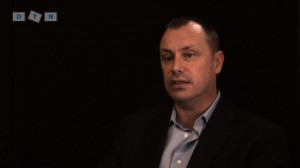
“If you look at over the next couple of decades or so, and the industry looks to additional forms of computing, one which comes to mind is quantum computing. Over the course of the next couple of decades, a 1.000 dollar personal computer could have the equivalent processing power of nine billion brains. The world changes very radically.”
______________________________________________________________________________________________________________________________________________________
Mark Finnern, SAP Chief Community Evangelist responsible for the SAP Mentor Initiative. He founded the Future Salon.
“I really think, yes, one of the big questions should be, of that 100 times change in the next 10 years, how much of that can actually be observed by us humans? So, what is the limit of our capacity, I think, is the important limit for us of absorbing that kind of change? And that is something that I think we should ask ourselves. Where is that, and how can we support us humans in dealing with this kind of change?”
______________________________________________________________________________________________________________________________________________________
Rishab Aiyer Ghosh, Open Source Initiative board member. He is co-founder and director of Topsy Labs and Founding International and Managing Editor of peer-reviewed journal First Monday. He is also Programme Leader of FLOSS at UNI-MERIT.
“It’s asymmetry and the flow of information and privacy that would be damaging. If nothing was private, that would be less damaging than if some things outside your control were private.”
______________________________________________________________________________________________________________________________________________________
Jeremy Godfrey, Government Chief Information Officer of the Government of Hong Kong Special Administrative Region (HKSAR).
“Any doctor you see in the hospital authority can find your medical history, can look at the films if they’ve come from radiographic images and so forth. It’s led to a very high degree of productivity in the hospital authority, reductions in medical accidents, reductions in unnecessary duplicated medical tests.”
“We’re building an electronic record-sharing infrastructure to enable doctors’ labs, public and private sector to exchange data as necessary to enable and to deliver care. But, privacy concerns are absolutely foremost in that scheme. So, one of the first decisions we made, was to decide the data belongs to the patient, so the patient must be in control of authorising which doctors should be allowed to see the data.”
______________________________________________________________________________________________________________________________________________________
Tom Gruber, Current project is Siri, where he is a co-founder, CTO, and VP Design.
Tom is an innovator in technologies that augment human intelligence, individually and collectively. Applying ideas from Artificial Intelligence, Cognitive Science, and Design, his work has explored how connecting people and machines can foster collaboration, learning, knowledge sharing, and getting things done.
“I’m curious about what will individual identity be in the future? That’s the key to a lot of not only wealth creation and that kind of thing in businesses, but also how the society evolves. If strong individual identity is the result, if every human has a brand on the Internet and they care about the brand and they care about the brand of the individual and the tribe they belong to, if that is the case, then the forces will be in place to have lots of reform in the way services are provided and as I said before, in government.”
______________________________________________________________________________________________________________________________________________________
John Hagel, Co-Chairman at the Deloitte Center for the Edge.
John’s work is at the intersection of business strategy and information technology.
“The technology is continuing to expand and enhance its performance at exponential rates. The issue is much more around the capacity to absorb this technology and effectively reorganise and rethink how we do business to most effectively take advantage of the technology that’s available.”
______________________________________________________________________________________________________________________________________________________
Brewster Kahle, Co-founder and director of The Internet Archive.
Brewster is a computer engineer, internet entrepreneur, activist, and digital librarian. He was a member of the Thinking Machines team, (1983-1992), where he developed the WAIS system, a precursos to the World Wide Web.
“The open thing just continues to surprise us, to shock us. That it’s the kid in Lithuania that comes up with something that seems a little risqué, a little bit odd, but is what is going to blow things up and make it a very interesting 10 years.”
“Openness is the best thing for capitalism. Closed is the best thing for monopolies, and monopolies are a starved desert of information and innovation.”
______________________________________________________________________________________________________________________________________________________
Robert Kahn, Chairman, CEO and President of the Corporation for National Research Initiatives (CNRI).
Robert is an engineer and computer scientist who, along with Vinton G. Cerf, invented the Transmission Control Protocol (TCP) and the Internet Protocol (IP), the technologies used to transmit information on the Internet.
“The real question is how to enable the countries of the world to play a more active role in the evolution of the Internet than I think they currently feel they have.”
______________________________________________________________________________________________________________________________________________________
Lalit Kanodia, Chairman at Datamatics Global Services Limited
Lalit is considered as the founder of the Indian IT and BPO industry. Datamatics is a global provider of intelligent, value-driven technology and business solutions.
“I think my perception of India right now is that it’s a very hungry nation. I don’t know how you can measure hunger, whether it’s the businessman or whether it’s the common man. I think there’s a great desire to move forward. And I think India sees IT and communications and the Internet as a way to satisfy its hunger.”
______________________________________________________________________________________________________________________________________________________
Rahul Kanodia, Vice Chairman & CEO at Datamatics.
Datamatics is a global provider of intelligent, value-driven technology and business solutions.
“In our company, Datamatics, we have got about 1.200 women who are sitting at home and working. And that is possible because of the communication and the internet, so they connect to our servers, they download work, they finish the work, they upload it… There are men and women in villages who can now service a large multinational company in Frankfurt or in New York without even being close to knowing who they are, which was not possible earlier. [This] creates a social revolution, it creates an economic revolution, it creates a political revolution and I don’t think we fully understood all of that.”
______________________________________________________________________________________________________________________________________________________
Shumpei Kumon, Head of Tokyo-based Center for Global Communications
Shumpei is a social economist who predicted that in addition to spawning a “third industrial revolution”, the developing information infrastructure will also spawn a social revolution, creating a new class of network-aware citizens, or “netizens.”
“A new class of the social game is now coming into existence, replacing or complementing to a certain extent the old social game called worth game, or capitalist game of profit seeking.”
______________________________________________________________________________________________________________________________________________________
Jaron Lanier, Pioneer in ICT
Jaron is an American computer scientist, composer, visual artist, and author. He was a pioneer in, and popularized the term “Virtual Reality” in the early 1980s.
“The thing that made the difference is this flipping of the Internet from being something that really accelerates the power of people to do things, to being something that becomes as sort of a coercive gatekeeper that pulls value out of the situation, and actually impedes people even as it seems to be helping.”
______________________________________________________________________________________________________________________________________________________
Peter Leyden, Founder and CEO of Next Agenda
Next Agenda is a startup that’s a cross between a policy think tank and a new media business leveraging new technologies ‘to help solve America’s biggest challenges.’
“Understanding how do we run a global economy differently without human beings being shuttled all over the different corners of the planet constantly, that’s going to have a big impact on information technology and the use for, let’s say, broadband, really big video interconnects, basically allowing people to do much more sophisticated work, instead of face to face, doing it across the network.”
______________________________________________________________________________________________________________________________________________________
Charles Mok, Chairman at the Hong Kong Internet Society.
Charles is a Hong Kong based Internet entrepreneur and IT advocate.
“The Chinese government is very keen on developing an Internet environment inside of China that is, in a way, its own Internet, with its own rules and with its own service providers.”
“I think there is a huge gap between businesses, governments, communities in general, the way that they understand where the Internet or the media is going, as opposed to the people who are leading the usage of these applications. I think, in a way, I could put it as the conflict or the gap between the so-called digital natives and the digital immigrants.”
______________________________________________________________________________________________________________________________________________________
Sourav Mukherjee, President & CEO at Netscribes.
Netscribes is a consulting and solutions firm that offers investment and business research, knowledge management and communication services to meet the tactical business objectives of global clients.
“India is just doing services for others. Today if you have the entire back end of Thomson Reuters in India, what stops India from creating a global database of its own, and branding it. … India has not been able to create brands yet.”
______________________________________________________________________________________________________________________________________________________
Teruyasu Murakami, Chief Counselor at Nomura Research Institute.
Teruyasu is author of “The Ubiquitous Network and Challenges to the Information System”.
“The basic difference between web computing and the ubiquitous networking is, I think web computing is enriching the virtual space, the virtual world by internet, but the ubiquitous networking is taking a different direction not going into the virtual world, but to the real world.”
______________________________________________________________________________________________________________________________________________________
Jun Murai, Professor at the Faculty of Environmental Information at Keio University, Japan.
Jun is a computer scientist, and known as “the father of Japan’s Internet”.
“The fragmentation of the networks could be happening and … we are already seeing them, but then it’s really important that we keep at least a single global space as a kind of a very, very basic digital communication means, which I believe to be the Internet.”
______________________________________________________________________________________________________________________________________________________
Tim O’Reilly, Founder of O’Reilly Media.
Tim is a supporter of the free software and open source movements.
“The problems is that the game of open versus closed isn’t just at the level where it used to be of protocols or even of hardware. There’s a fundamental idea that I think anybody who thinks about the future of IT has to be aware of, which is that the locus of the open versus closed battle always moves to the higher level of the stack.”
______________________________________________________________________________________________________________________________________________________
Alok Pathak, CEO at Idhasoft.
Idhasoft is a Mumbai based international organization that provides a range of IT services, from software application development and strategic IT consulting to recruitment process outsourcing, and implements third party enterprise-wide products.
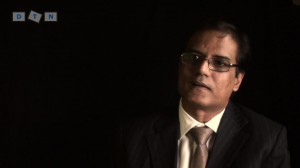 “IT is going to be as service oriented as hospitality industry, where the quality of service, in time, on budget service is going to be the mantra of IT.”
“IT is going to be as service oriented as hospitality industry, where the quality of service, in time, on budget service is going to be the mantra of IT.”
“IT has to understand the mindset of the business and create a very interactive solution.”
______________________________________________________________________________________________________________________________________________________
Christine Peterson, Co- founder and President of Foresight Institute, the leading nanotech public interest group.
Christine writes, lectures, and briefs the media on coming powerful technologies, especially nanotechnology. Foresight educates the public, technical community, and policymakers on nanotechnology and its long-term effects.
“I kind of doubt that governments are going to be able to keep up with the technology, to the extent that they will be able to steer it right at the cutting edge (…) they’ll be continually playing catch up, and I think they’ll be continually having trouble understanding what the issues are.”
______________________________________________________________________________________________________________________________________________________
Sudhakar Ram, Chairman & Managing Director at Mastek
Mastek is a high-end provider of vertically-focused enterprise technology solutions and platforms.
“I think somehow the age of large businesses has to end over the next ten years and that is where your utility model comes. So there will be large utilities which provide single function and they do it extremely well, but there will be a lot more local flavours, which are handling micro markets, who work very specialized, who have a great insight into costumers.”
______________________________________________________________________________________________________________________________________________________
Yat Siu, Founder and Chief Executive Officer of Outblaze
Outblaze is a messaging communications company that services over 40 million users.
“I think the culture plays a very, very big role as to why [global] entrepreneurial dynamic changes. And I think it has to do with age. And that’s why I think China is more advanced because you have a very, very young generation of entrepreneurs who have nothing to lose, but who also feel invincible, whereas, let’s say in the more wealthier places, you would say like Japan, for instance, people feel like they have something to lose by the time they start a business, or they’re risk adverse because they don’t want to lose it.”
______________________________________________________________________________________________________________________________________________________
Munwar Shariff, CTO and VP of Business Development at CIGNEX.
CIGNEX aims at bringing Open Source advantages to production environments.
“In the next 10 years, I believe maybe it is not surprising about 80 to 90% of the application software which will be in the market will be the open source based platform.”
______________________________________________________________________________________________________________________________________________________
Marc Smith, Chief Social Scientist at the Connected Action Consulting Group.
Marc is a sociologist specializing in the social organization of online communities and computer mediated interaction.
“The ideological idea that my data is not my data seems to be a dangerous one.”
______________________________________________________________________________________________________________________________________________________
Yasu Taniwaki, Division Director ICT Strategy at the Telecommunications Policy Division, Telecommunications Bureau Ministry of Internal Affairs & Communications (MIC) in Japan.
“E-government is good for ensuring the transparency of the government or improving the efficiency of the government. And when we talk about the e-government, again, we have to change from the supply side to the demand or user side. More user-centric models should be developed in the context of developing e-governments. So, that kind of chance of mode has been taking place within the Japanese government.”
______________________________________________________________________________________________________________________________________________________
Hal Varian, Chief Economist at Google.
Hal is an economist specializing in microeconomisc and information economics. He is also professor at the School of Information, the Haas School of Business, Department of Economics at University of California at Berkeley.
“Well, one idea that I think is very exciting is something I’ve called “micro multinationals.” A tiny company, a 10-person company, has access to communications and computational capabilities that only the largest multinational had access to 15 years ago. So, you can have these small organisations that are actually global from the beginning that can work around the clock. As the earth turns, you can work on something in San Francisco, pass it off to the Netherlands, pass it from there to Asia, and continue the project 24 hours a day. You can do this with a 10-person company.”
______________________________________________________________________________________________________________________________________________________


